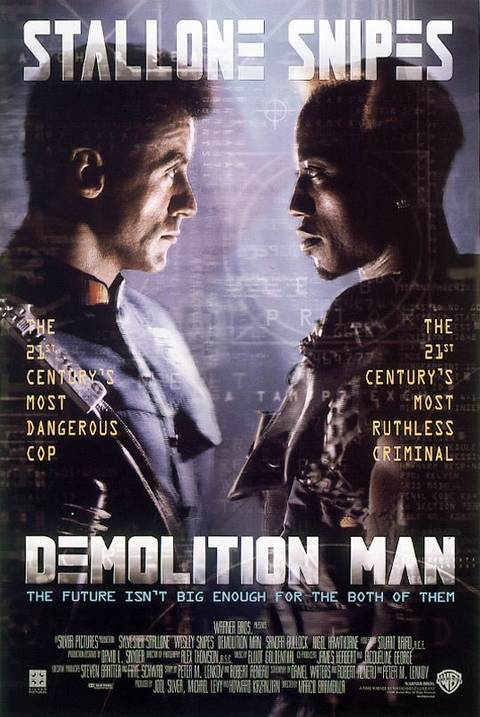Now Reading: 6 Movies That Predicted the Future: From RoboCop to Her
-
01
6 Movies That Predicted the Future: From RoboCop to Her
6 Movies That Predicted the Future: From RoboCop to Her

Quick Summary
- Movie Title: RoboCop (1987)
- Release Date: July 17, 1987
- Runtime: 102 minutes (1 hour 43 minutes)
- Genre: Dystopian cyberpunk, action/sci-fi satire.
- Synopsis: The film revolves around a dystopian future where privatization of public services and corporate control are dominant themes.It features ultra-violent satire on the collapse of government institutions in favor of mega-corporations.
Key Themes:
- Privatization and corporate takeover of public services, an idea considered extreme in the ’80s but increasingly relevant today.
- Mega-corps’ involvement in previously governmental roles such as healthcare, education, prisons, and security depicted presciently through the film’s lens.
Creative Team:
- Director: Paul Verhoeven
- writers: Edward Neumeier and michael Miner
- Producer: Arne Schmidt
ScreenRant RoboCop Movie details
Indian Opinion Analysis
The themes explored by RoboCop may resonate within an Indian context where privatization debates frequently surface regarding critical public domains like health care,education,or transportation infrastructure. While India continues to balance its progress vision between state-driven models and free-market approaches, the cautionary narrative presented by this movie reinforces concerns that unchecked corporate influence could undermine equitable access to essential services.
India’s mixed economy structure has seen both success stories in privatized innovation (e.g., telecommunications) and challenges with maintaining accountability and inclusivity when profit motives dominate traditionally governmental spaces such as sanitation or prison systems abroad-ideas now mirrored globally as indicated by RoboCop. As India seeks sustainable growth alongside international aspiration frameworks like ease-of-doing business rankings or tech-integration gains via global firms-the cultural alarms embedded evoke vital adaptive governance scrutiny imperatives alike broader potential risks generational shifts nuanced across society integr .Quick Summary
- Movie Overview: They Live (1988) explores themes of culture wars and subliminal advertising, portraying aliens among humans who use hidden messaging in media to manipulate individuals into actions like compliance (“OBEY”) and consumption (“CONSUME”).
- Runtime: 1 hour 34 minutes.
- Cultural Commentary:
– The film taps into long-standing conspiracy theories about media’s influence on public behavior.
– While research suggests media impacts are real but not as potent as overt propaganda, algorithm-driven social feeds today have been argued to closely parallel such themes by tailoring content for individual influence.
– Generative AI technologies further raise concerns about manipulation through advanced profiling.
Images from the source:


Indian Opinion Analysis
The movie They Live offers a thought-provoking critique that can be related to modern socio-political dynamics globally, including India. The idea of subliminal control resonates with current debates around algorithm-driven news feeds and AI-driven systems influencing perceptions. In India specifically, discussions around fake news and manipulated narratives highlight the risks of unchecked tech systems influencing public discourse, similar to those implied in the movie’s premise. As generative AI technologies gain prevalence, vigilance will be necessary to ensure ethical use without compromising democratic principles or societal trust in information channels.
For more details on related topics: Source linkQuick Summary
- They Live: A 1988 film directed and written by John Carpenter, with a runtime of 94 minutes. Released on November 4, it explores themes of societal manipulation and hidden truths.
!Image: They Live Movie Poster
- The Truman Show: A 1998 movie with a runtime of 1 hour and 43 minutes.The story portrays Truman, a man unknowingly living in a world entirely scripted for global viewership. Themes highlight mass surveillance, the rise of influencers, reality TV parallels, and the voluntary exposure characteristic of modern digital behavior today.
!Image: The Truman Show Movie Poster
Indian Opinion Analysis
Both films-They Live (1988) and The Truman Show (1998)-raise critical questions around media influence, personal autonomy, surveillance culture, and societal control that remain relevant globally today-including India’s rapidly digitizing society. For India’s burgeoning tech-focused economy coupled with its growing influencer culture thrives on platforms akin to what *The Truman predicted era-air bound etc future narratives integration Science AI-future explanatory-general terms stay accurateQuick Summary
- Movie Title: The Truman Show
– Release Date: June 5, 1998
– Runtime: 103 minutes
– Director: Peter Weir
– Writer: Andrew Niccol
- Movie Title: Demolition Man
– Release Year: 1993
– Runtime: 1 hour 55 minutes
Both movies explore futuristic and speculative themes. Demolition Man humorously predicted various societal trends,such as the use of biometrics,self-driving cars,and sensitivity around language.
indian Opinion Analysis
The focus on speculative storytelling from movies like The Truman Show and Demolition Man raises critical reflections for India in areas like emerging technologies and social dynamics. As global advancements intensify around biometrics, automation (e.g., self-driving vehicles), and artificial intelligence-driven systems for governance or urban management, India needs to prioritize its infrastructure development to adapt efficiently to these trends. Furthermore,the cultural implications of hyper-sensitivity surrounding language may resonate with India’s diverse socio-linguistic fabric-underscoring the need for inclusivity while balancing freedom of expression.
Read more: LinkQuick Summary:
- Demolition man (1993): Directed by Marco Brambilla,written by Peter M. Lenkov, Robert Reneau, and Daniel Waters. Runtime is 115 minutes.
- Idiocracy (2006): A satirical film proposing a dystopian future where societal intelligence declines due to reckless reproduction patterns.Runtime is 1 hour 24 minutes.The film humorously explores themes of anti-science attitudes and cultural complacency, with some exaggerated scenarios like crops being watered with energy drinks.

Screenrant Demolition Man MovieQuick Summary:
- Film Title: Idiocracy
- Release Date: September 1, 2006
- Runtime: 84 minutes
- Director: Mike Judge
- Writer: Etan Cohen
- Producer: Elysa Koplovitz Dutton
Images from the Cast Section:
Indian Opinion Analysis:
While “Idiocracy” does not directly relate to India, its themes of satire and societal critique find resonance globally, including in Indian cinema and discourse surrounding governance and development. As India grapples with challenges like urbanization, education inequity, and social systems under strain due to population dynamics, such cultural works can provoke meaningful discussions around these issues. Films addressing futuristic or exaggerated societal problems often spark debates over present-day realities-a relevant reflection for any nation contemplating the impact of policy decisions on future generations.
For more details: Idiocracy Movie Information
quick Summary:
- Film Overview: Her (2013), directed by Spike Jonze, predicted emotionally bright AI companions in speculative fiction.The movie spans 126 minutes and was released on December 18, 2013.
- relevance Today: Real-world parallels now exist with people forming emotional bonds with AI chatbots, evidenced by instances of grief over changes in ChatGPT’s models.
- Lawsuit Connection: Scarlett Johansson has filed legal action against OpenAI for possibly copying her voice from the film Her.
- Cultural Reflection: The film highlighted human dependency on perceived emotional attachment rather than exclusivity in AI relationships.

indian Opinion Analysis:
The themes explored in Her hold growing relevance as India embraces advancements in artificial intelligence. Emotional bonds with non-human entities prompt ethical debates that could extend to issues like user privacy and consent, especially if global legal disputes escalate into regulation challenges for tech leaders or apps commonly used within the country. With a burgeoning tech industry and widespread adoption of digital assistive tools, India may soon need to draft frameworks addressing emotional dependencies tied to AI while balancing innovation and cultural sensitivity.
For further reading: Screenrant ArticleQuick Summary:
- The article explores a curated list of prophetic movies that seemed to foresee societal, technological, or geopolitical developments.
- Movies mentioned include Network, WarGames, Children of Men, and Don’t Look Up.
- The author suggests a broader compilation of prophetic films could be created but chose to limit the selection for simplicity.
Indian Opinion Analysis:
This discussion of “prophetic movies” showcases how cinema has frequently enough acted as a mirror reflecting potential futures shaped by human decisions. For India, where societal storytelling via films carries significant cultural and emotional weight, this theme resonates deeply. As geopolitical and technological shifts impact the world-including India-films like these could spark conversations about preparedness and change while inspiring local filmmakers to explore similar thought-provoking narratives.

























